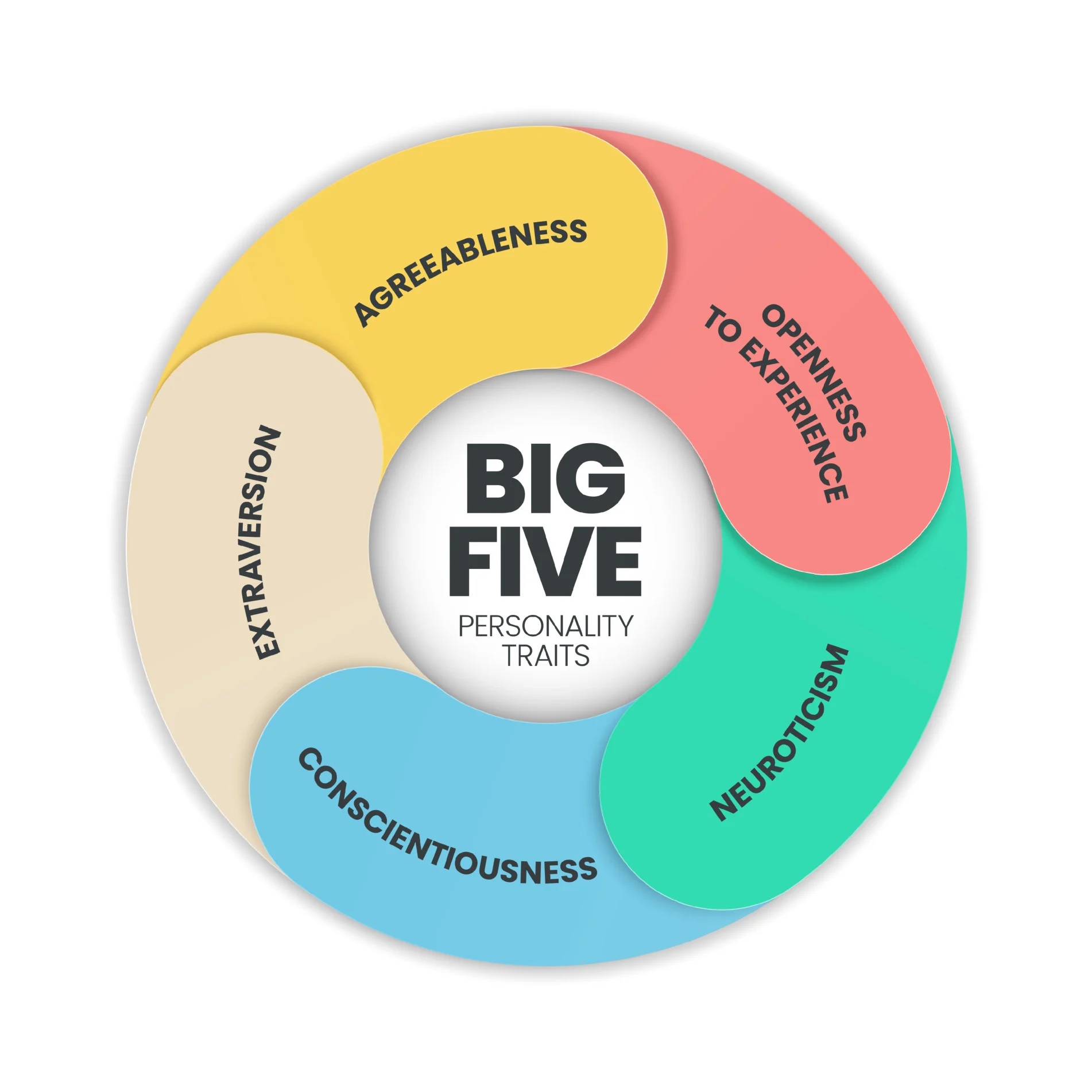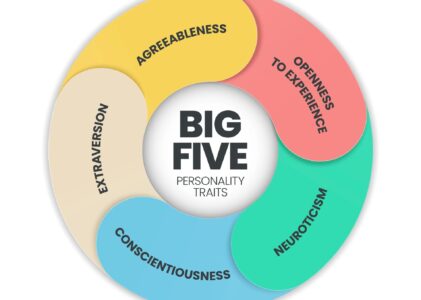Personality is a multifaceted construct that encompasses an individual’s unique pattern of thoughts, emotions, and behaviors. While often celebrated for its diversity, personality also plays a significant role in determining an individual’s performance across various domains of life, including academic, professional, and interpersonal realms. Understanding how different personality traits influence performance outcomes can provide valuable insights for personal development, career advancement, and enhancing overall well-being.
The Five-Factor Model
At the heart of the discussion lies the Five-Factor Model (FFM), which proposes five core dimensions of personality: openness, conscientiousness, extraversion, agreeableness, and neuroticism. Each dimension represents a spectrum along which individuals vary, and these variations have been extensively studied in relation to performance metrics.
One of the most well-established findings is the positive association between conscientiousness and performance across diverse domains. Individuals high in conscientiousness tend to be organized, responsible, and diligent, traits that are conducive to success in academic pursuits, professional endeavors, and goal attainment. Their ability to plan ahead, stay focused, and persist in the face of challenges equips them with a competitive edge in achieving their objectives.
Conversely, neuroticism, characterized by a tendency towards negative emotions and emotional instability, has been linked to lower performance levels. Individuals high in neuroticism may experience heightened levels of stress, anxiety, and self-doubt, which can impede their ability to concentrate, make decisions, and perform optimally. Managing stress and cultivating resilience are crucial strategies for mitigating the detrimental effects of neuroticism on performance.
Extraversion, characterized by sociability, assertiveness, and positive affectivity, has shown mixed effects on performance outcomes. While extraverts may excel in roles that require interpersonal interaction, leadership, and networking, they may also face challenges in solitary tasks that demand deep concentration and introspection. Understanding one’s extraversion level and leveraging it appropriately can optimize performance in diverse contexts.
Openness to experience, reflecting a predisposition towards curiosity, creativity, and intellectual exploration, has been associated with enhanced performance in creative endeavors, problem-solving tasks, and innovation-driven industries. Individuals high in openness thrive in dynamic environments that offer opportunities for learning, experimentation, and unconventional thinking, thus shaping their performance trajectory in unique ways.
Agreeableness, characterized by warmth, cooperation, and empathy, plays a crucial role in interpersonal relationships and team dynamics, which are integral to collaborative endeavors. While agreeable individuals may excel in roles that require cooperation, conflict resolution, and customer service, they may also face challenges in asserting themselves and making tough decisions when necessary.
Other Factors
Beyond the FFM dimensions, other personality factors such as grit, resilience, emotional intelligence, and locus of control also exert significant influence on performance outcomes. Grit, defined as perseverance and passion for long-term goals, predicts success across various domains by fostering resilience in the face of setbacks and maintaining motivation amidst adversity.
Emotional intelligence, encompassing the ability to perceive, understand, and manage emotions, contributes to effective leadership, communication, and interpersonal skills, all of which are critical for performance excellence. Individuals with high emotional intelligence are better equipped to navigate social complexities, build rapport, and inspire others towards shared goals.
Locus of control, referring to the extent to which individuals perceive themselves as having control over their lives, influences motivation, goal-setting behavior, and coping strategies. Those with an internal locus of control tend to attribute outcomes to their own actions and efforts, fostering a sense of agency and accountability that drives performance. In contrast, individuals with an external locus of control may feel powerless and resigned to external forces, limiting their initiative and engagement in achieving desired outcomes.
Personality and Performance
Personality exerts a profound influence on performance across diverse domains, shaping individuals’ behaviors, motivations, and interactions with the environment. While certain traits such as conscientiousness and emotional intelligence are consistently associated with positive performance outcomes, the interplay of multiple factors underscores the complexity of human behavior. By understanding and harnessing the power of personality, individuals can optimize their performance potential, cultivate resilience in the face of challenges, and embark on a path of continuous growth and success.


